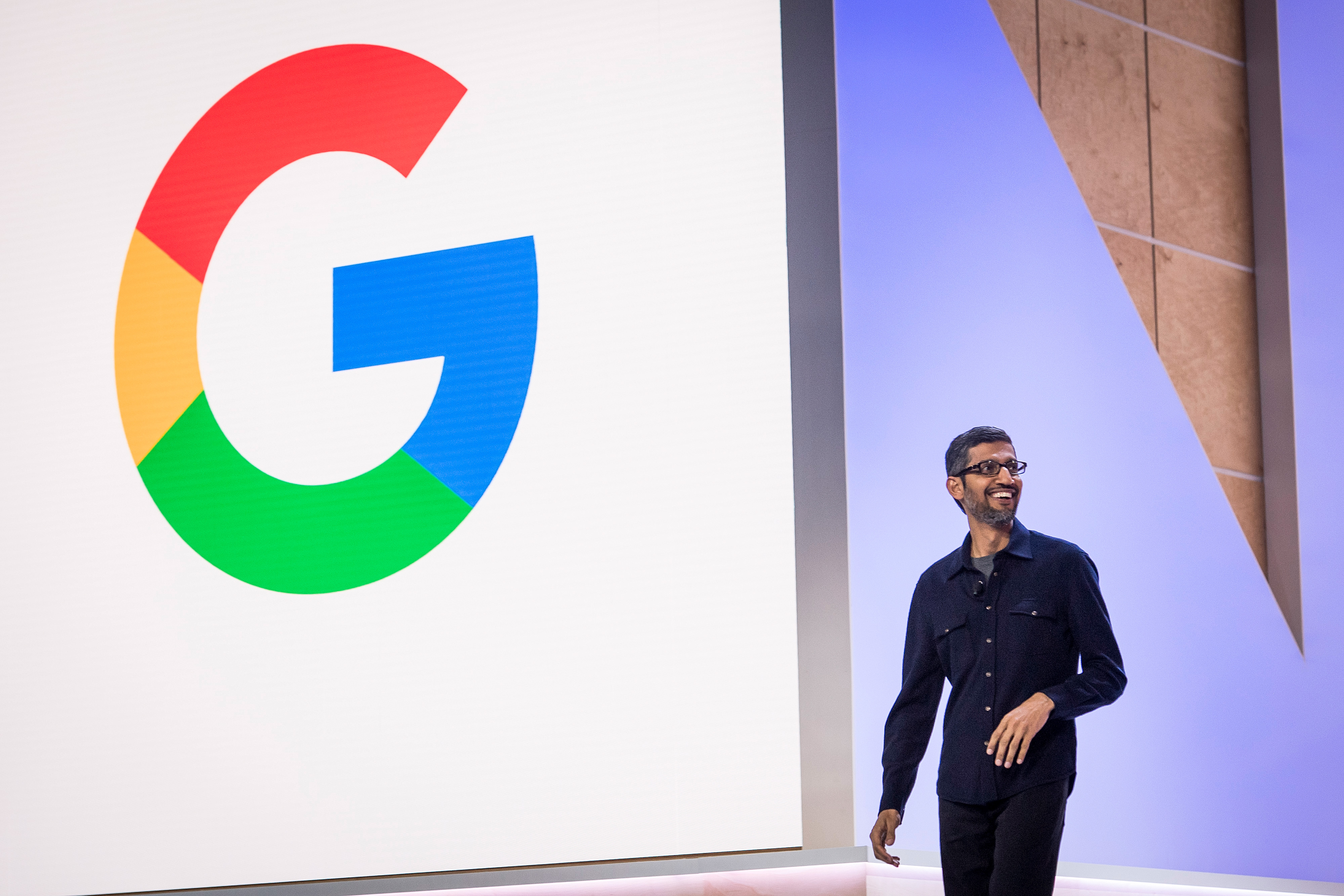Ahead in the Cloud: How cloud computing is revolutionising retail
More than just a way to share files, businesses across the UK are waking up to the retail opportunities cloud computing can offer

A free daily email with the biggest news stories of the day – and the best features from TheWeek.com
You are now subscribed
Your newsletter sign-up was successful
Cloud computing is the cutting-edge technology that lets you save information seemingly into thin air and share it seamlessly across all of your devices.
But The Cloud isn't just some remote hard drive. Yes, a big part of the idea is non-local storage, meaning if your computer or mobile phone dies you won't lose your files, but there is a great deal more potential in such linked-up, decentralised information management.
Businesses across the UK and the world, especially in areas like retail which serve an increasingly demanding and tech-savvy customer base, are just starting to wake up to the possibilities of what cloud computing can offer.
The Week
Escape your echo chamber. Get the facts behind the news, plus analysis from multiple perspectives.

Sign up for The Week's Free Newsletters
From our morning news briefing to a weekly Good News Newsletter, get the best of The Week delivered directly to your inbox.
From our morning news briefing to a weekly Good News Newsletter, get the best of The Week delivered directly to your inbox.
Most obviously, using remote computer systems that are maintained by expert third parties saves companies from buying all the expensive hardware and bearing the associated costs – repairs, staff, obsolescence – enabling them to concentrate on what they do best.
Take Dixons Carphone, Europe's largest specialist electrical and telecommunications retailer. Following the £3.7bn merger between Dixons Retail and Carphone Warehouse in 2014, the newly-formed group faced a challenge of truly mammoth proportions: consolidating its two existing IT infrastructures, each of which was gigantic in its own right.
Legacy IT systems are becoming an increasing burden on large companies (high street banks are another perfect example of this). As they age they become more expensive to maintain, but are also incredibly costly and labour-intensive to replace. The Cloud offers the solution.
In this case Dixons Carphone chose IBM to provide a "hybrid" cloud solution, combining a private remotely maintained network for back-office systems with a public system for more customer-facing applications.
A free daily email with the biggest news stories of the day – and the best features from TheWeek.com
"We know we can trust IBM Cloud to seamlessly integrate infrastructures of both companies into one hybrid cloud that will enable us to continue focusing on other parts of the business," said David Hennessey, IT director at Dixons Carphone.
But Cloud computing can offer benefits beyond simply upgrading computer systems. By enabling businesses to operate in a much more co-ordinated fashion, and offering the potential to access and analyse the "big data" available online to give an insight into consumer tastes, it is transforming how retailers interact with shoppers.
An example of this is Boots UK. Through a partnership with IBM and Apple, the retail pharmacy chain unveiled a next-generation cloud service that allows workers in any store to use an iPad to instantly check if a product is in stock.
If it isn’t, customers will be pointed to another nearby branch or can order it online for collection the next day. Effectively, the company said in a statement, the tool "will help even our smallest stores feel like a flagship shop".
Boots has rolled out an IBM-powered app for iOS called Sales Assist – and it does more. Boots workers can access everything from information about what is in stock, to recommended alternative buys based on what other shoppers are purchasing, all at the tap of an iPad screen.
Perhaps the best current example of the potential of cloud computing to change how retailers serve customers was the partnership between IBM and the Westfield shopping centre in San Francisco.
For Christmas 2015, the shopping hub used IBM's Watson cognitive computing technology to give shoppers a more efficient, streamlined, and downright intelligent gift-buying experience.
Watson is a system that "learns" how to respond to complex queries in any field, based on a cumulative analysis of huge reams of data. In this case, by inputting vast volumes of sales information and social media "dark data" into shopping tastes and habits, it was able to act as a personalised sales adviser.
Shoppers entered a few details on the person they were looking to buy for, with sliding scales relating to characteristics like how outgoing, analytical, or confident they are. Alternatively, they could type in a Twitter handle, allowing Watson to analyse the content of the person's tweets to pull out their traits.
Once the personality had been entered into the system, Watson would pull out gift suggestions based on patterns observed in similar people. And it was learning and honing its recommendations all the time.
This highlights another potential benefit of using The Cloud: it's not just a remote hard drive for backing up files. It can function as a sort of living, breathing, thinking database to analyse huge volumes of information and bring you the most relevant answer to any query.
This kind of analytical recall is being used by businesses all over the world even beyond retail, from shopping centres like Westfield to Australian oil services giant Woodside Energy.
Besides relieving the risk of on-site digital storage, cloud computing can help businesses reduce costs, find efficiencies, manage information and adapt their business to meet ever-changing customer demands.
It's a revolution in business – and it's just getting started.
Understand your retail customers and deliver the right experience at just the right moment to create unbreakable bonds with IBM Commerce for retail
Learn how the IBM Cloud is designed to transform data into new insights and opportunities
-
 Health insurance: Premiums soar as ACA subsidies end
Health insurance: Premiums soar as ACA subsidies endFeature 1.4 million people have dropped coverage
-
 Anthropic: AI triggers the ‘SaaSpocalypse’
Anthropic: AI triggers the ‘SaaSpocalypse’Feature A grim reaper for software services?
-
 NIH director Bhattacharya tapped as acting CDC head
NIH director Bhattacharya tapped as acting CDC headSpeed Read Jay Bhattacharya, a critic of the CDC’s Covid-19 response, will now lead the Centers for Disease Control and Prevention
-
 Can Europe regain its digital sovereignty?
Can Europe regain its digital sovereignty?Today’s Big Question EU is trying to reduce reliance on US Big Tech and cloud computing in face of hostile Donald Trump, but lack of comparable alternatives remains a worry
-
 How the online world relies on AWS cloud servers
How the online world relies on AWS cloud serversThe Explainer Chaos caused by Monday’s online outage shows that ‘when AWS sneezes, half the internet catches the flu’
-
 AI job fears: how can we regulate the ‘rise of the robots’?
AI job fears: how can we regulate the ‘rise of the robots’?Today's Big Question Concern grows that ‘AI jobs bloodbath’ is underway as BT announces plan to shed 55,000 staff
-
 The importance of an innovation-led culture for organisations
The importance of an innovation-led culture for organisationsfeature Why harnessing the right technology is essential for getting the best out of your employees
-
 Has Google reached ‘quantum supremacy’?
Has Google reached ‘quantum supremacy’?In Depth IBM questions technology giant’s breakthrough in quantum computing
-
Project Debater: IBM builds robot that argues with humans
Speed Read Public debate between AI and humans ends in draw
-
 Blockchain: Beyond bitcoin
Blockchain: Beyond bitcoinIn Depth The technology underpinning the cryptocurrency could have a range of business applications
-
 How the cloud gave a vintage car new life
How the cloud gave a vintage car new lifeIn Depth What began as a plan to keep track of a journey, ended up driving a 1933 touring car into the digital age